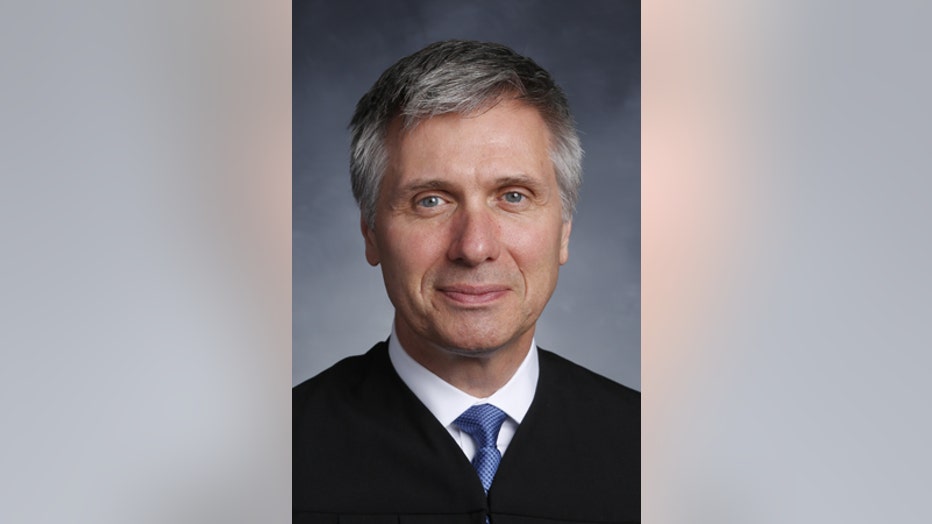Myon Burrell trial to begin this week, judge orders no cameras
MINNEAPOLIS (FOX 9) - Myon Burrell, who was freed from prison when his life-sentence for murder was commuted several years ago, is scheduled to go to trial on weapons and drug charges in Hennepin County District Court on Monday.
Burrell was arrested by Robbinsdale police during a traffic stop last year. Investigators allegedly found a loaded gun and drugs in his SUV.
A FOX 9 request to allow cameras at Burrell’s trial this week was denied, a judicial decision drawing questions and concerns from some media advocates.
In December 2020, Burrell was released from the Stillwater prison to the joyful screams of a large group of supporters gathered at the gates, when his life-sentence was commuted by the state’s Board of Pardons that included votes from Minnesota Gov. Tim Walz and Attorney General Keith Ellison.
As a teenager, Burrell was convicted in the stray bullet killing of 11-year-old Tyeshia Edwards, who was shot while doing homework in her Minneapolis home. Subsequent reviews of the case found issues including questionable eyewitness testimony, reliance on jailhouse informants, and a failure by investigators to track down potentially exculpatory surveillance video. Burrell always maintained his innocence.
Now, Burrell is set to return to court on the new felony charges stemming from the Robbinsdale traffic stop where police allegedly found a loaded Glock with an extended magazine in Burrell’s vehicle along with illegal drugs. FOX 9’s request for a camera in that courtroom to track proceedings was denied by Hennepin County Assistant Chief Judge Mark Kappelhoff.

Hennepin County Assistant Chief Judge Mark Kappelhoff. (Supplied)
"What it basically came down to was he [Judge Kappelhoff] said, ‘I do not think there is enough public interest in this.’ Well, how can the public be interested in something they really do not know very much about?" asked Jane Kirtley, who is a University of Minnesota media ethics and law professor.
Kirtley has fought for universal camera access in state courts for 25 years.
"By its very nature, any kind of criminal case is a matter of legitimate public interest," said Kirtley, who has read Judge Kappelhoff’s seven-page order denying camera access at the Burrell trial.
Rules governing cameras in Minnesota courts for trials were loosened this year, with the intention of making it easier for the media to potentially broadcast or livestream inside the courtroom. This kind of access is allowed in 35 other states. However, judges still maintain some discretion in allowing cameras. And they have fully rejected nearly half of all media requests under the new rules.
"I think a lot of judges still believe that cameras do not have any business in the courtroom," said Kirtley.
Cameras have been blocked from at least a dozen trials, including Burrell’s case, where Judge Kappelhoff ruled there is not the same level of interest that there was during the high-profile trials of Derek Chauvin and Kimberly Potter during the pandemic.
Kirtley said, "The issue is how our courts overall operate. And in many respects, I think it is the more mundane trials that will fly below the radar, where there might actually be problems and where it is useful to have the media there documenting what is going on."
Among the legal issues at stake, Burrell is seeking full exoneration from his decades-old murder conviction that his legal team argues would nullify his weapons charge because, if exonerated, his record would be cleared, and he could no longer be charged as a felon in possession of a firearm. A motion from the defense asking Judge Kappelhoff to delay Burrell's trial to next year was denied late Friday afternoon.

